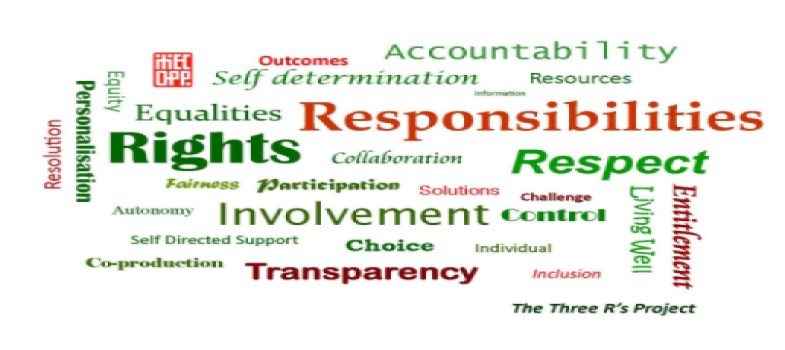Self-Directed Support and Human Rights
Proportionality and Qualified Rights
Where qualified rights such as under Article 8 are at issue, how do we assess when these rights can be interfered with?
With respect to qualified rights, the essential premise is that the right must be
restricted as little as possible, only going as far as is necessary to achieve
the legitimate aim.
The following tests should be applied to assess whether the interference in a qualified right is lawful:
- Is it in accordance with the law: does the proposed action have a basis in domestic law, are there safeguards against arbitrary interference, and is the law formulated with sufficient precision to enable the citizen to foresee the circumstances in which the law would or might be applied?
- Is it in pursuit of a legitimate aim: these are usually contained in the Act but have been additionally established and interpreted with reference to the case-law of the European Court of Human Rights. They include:
- Necessary
- Proportionate
- Not discriminatory
Proportionality means that the interference must be no more than is absolutely necessary to achieve one of the legitimate aims. The impact of the restriction on the individual must not be excessive in relation to the legitimate interests pursued. In other words, the state must not use a sledgehammer to crack a nut. The more severe the interference with an individual’s rights the more is required to justify it.
In this way the rules try to find a balance between the wider rights and interests of society and the fundamental rights of individuals, in instances where they conflict.
A common example where two rights have to be balanced is the right of freedom of speech versus the right to respect for your private life. In particular, if a public figure’s private life is of public concern because of their position, it may be proportionate and justifiable to interfere with their right to respect for their private life in order to publish information about that person which is in the public interest.
Using the following questions may be helpful in considering the sorts of things that should be asked to weigh this up…
What is the problem being addressed by the restriction upon someone’s rights?
Will the restriction lead to a reduction in the problem?
Does a less restrictive alternative exist and has it been tried?
Does that restriction involve a blanket policy or does it allow for different individual cases to be treated differently?
Has sufficient regard been paid to the rights and interests of those affected?
Do safeguards exist against error or abuse?
Does the restriction destroy the basic ideas behind the human rights at issue?
